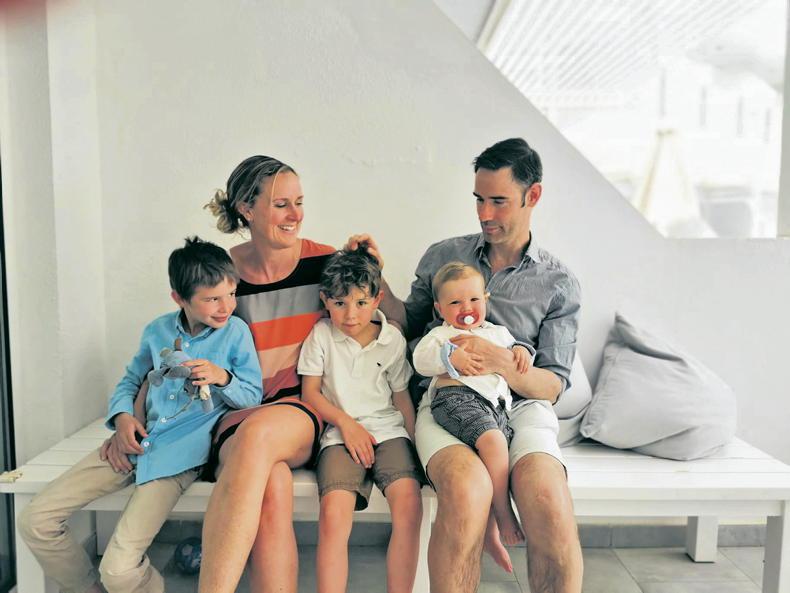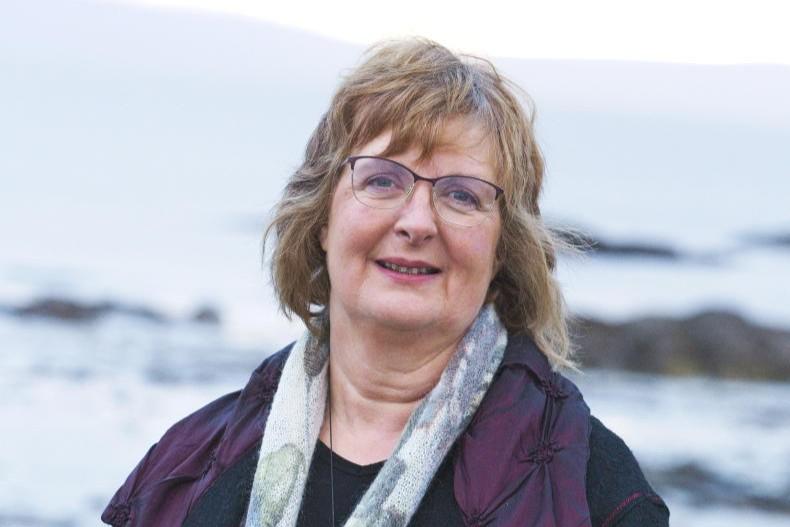In week one of our childcare series, Gerry and Susanna McCarthy spoke to Irish Country Living about their experience of the childcare system in Sweden, which is deemed to be one of the best models in OECD countries.
Gerry, who is Irish, and Susanna, who is Swedish, live just outside Malmo, which is the third largest city in Sweden with their three sons, Erik (eight), Gustav (five) and Henry (one).
This week, they discuss the supports that are in place for children with additional needs.
The couple’s eldest son Erik was diagnosed with autism when he was three years old. Since then, he has also been diagnosed with ADD and selective mutism.
Susanna says: “That was obviously a difficult time for us. I remember that we went into his preschool shortly after that, and we were ready to fight for him, to get the resources and supports that he needed.
But from the start it was pretty clear that Erik had rights and so all the things that we were going to ask for, they were already willing to put in place.
We received his diagnosis in April and the summer holidays began in June but they were in place when he returned to school that September.”
Gerry explains how the system works: “Locally, there is a rehab center, I guess that’s the best translation for it. And there is a team there of doctors, nurses, child psychologists, speech therapists, occupational therapists etc and they worked with us and the creche to give Erik the supports he needed.
There was a meeting with them, us and Erik’s teacher and they helped us develop a strategy for Erik’s development.
So, for example, we would use a lot of visual aids to help him with getting dressed, having his breakfast etc.
The school had the same plan as us so there was consistency in his development. There was also further coordination between the school and the rehab center where they would visit to track his progress.”
Furthermore, Susanna says there is a childcare professional (similar to a remedial teacher) who is assigned to a village and he or she would go to the preschools in the area and give expert advice, almost like coaching and supporting the teacher.
“As a result, his teacher did a lot of work in terms of integrating him into the classroom. Initially Erik would play to the side or go into the corner away from his classmates.
But they helped him based on his needs and, over time, he came out of his shell a bit, to play more, talk more, they really helped with his development.”
Gerry says: “Over the years he has also had swimming lessons, cycling lessons and that is organised by the rehab center but it was as a result of coordination with the preschool in terms of what was best for his needs.”
Susanna says not every parent has had the same experience. “I have heard different stories from parents who have had to work harder for resources for their children or that their preschool wasn’t quite as organised as ours but the law was on their side in terms of accessing these supports.”
See Childcare in Ireland
Read more
Rural childcare providers warn of closures
Childcare in Ireland- reaction to Core Funding
In week one of our childcare series, Gerry and Susanna McCarthy spoke to Irish Country Living about their experience of the childcare system in Sweden, which is deemed to be one of the best models in OECD countries.
Gerry, who is Irish, and Susanna, who is Swedish, live just outside Malmo, which is the third largest city in Sweden with their three sons, Erik (eight), Gustav (five) and Henry (one).
This week, they discuss the supports that are in place for children with additional needs.
The couple’s eldest son Erik was diagnosed with autism when he was three years old. Since then, he has also been diagnosed with ADD and selective mutism.
Susanna says: “That was obviously a difficult time for us. I remember that we went into his preschool shortly after that, and we were ready to fight for him, to get the resources and supports that he needed.
But from the start it was pretty clear that Erik had rights and so all the things that we were going to ask for, they were already willing to put in place.
We received his diagnosis in April and the summer holidays began in June but they were in place when he returned to school that September.”
Gerry explains how the system works: “Locally, there is a rehab center, I guess that’s the best translation for it. And there is a team there of doctors, nurses, child psychologists, speech therapists, occupational therapists etc and they worked with us and the creche to give Erik the supports he needed.
There was a meeting with them, us and Erik’s teacher and they helped us develop a strategy for Erik’s development.
So, for example, we would use a lot of visual aids to help him with getting dressed, having his breakfast etc.
The school had the same plan as us so there was consistency in his development. There was also further coordination between the school and the rehab center where they would visit to track his progress.”
Furthermore, Susanna says there is a childcare professional (similar to a remedial teacher) who is assigned to a village and he or she would go to the preschools in the area and give expert advice, almost like coaching and supporting the teacher.
“As a result, his teacher did a lot of work in terms of integrating him into the classroom. Initially Erik would play to the side or go into the corner away from his classmates.
But they helped him based on his needs and, over time, he came out of his shell a bit, to play more, talk more, they really helped with his development.”
Gerry says: “Over the years he has also had swimming lessons, cycling lessons and that is organised by the rehab center but it was as a result of coordination with the preschool in terms of what was best for his needs.”
Susanna says not every parent has had the same experience. “I have heard different stories from parents who have had to work harder for resources for their children or that their preschool wasn’t quite as organised as ours but the law was on their side in terms of accessing these supports.”
See Childcare in Ireland
Read more
Rural childcare providers warn of closures
Childcare in Ireland- reaction to Core Funding









SHARING OPTIONS